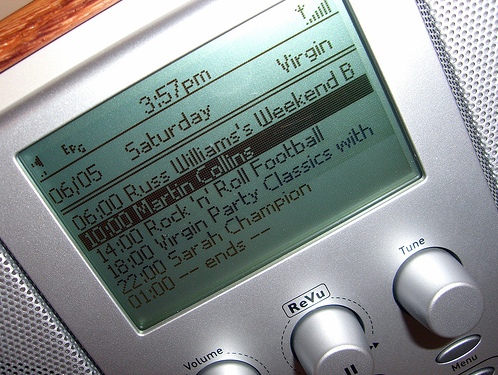The future of digital radio - revealed
DAB 2.0 could give us more stations & better sound

A new form of digital radio is being developed and is to be launched next year. It will use a totally new form of compression and transmit on a wider bandwidth.
Dubbed DAB 2.0, as it currently has no official title, it will use a more efficient form of compression - a form of MPEG4 called AAC .
Ofcom , the broadcast regulator for the UK, has said it will not be establishing the upcoming standard as its overall adoption will render some digital radios obsolete. But it has said it is watching DAB 2.0's development closely.
"Introducing a new digital radio technology now would have a serious adverse affect on DAB in the UK, and in the public's faith in the technology," a spokesperson for Ofcom told Tech.co.uk.
The regulatory body is aware that other countries will be adopting DAB 2.0, and hope this will encourage the development of dual-standard radios - capable of both. This is something Ofcom says will help the standard's introduction to the UK.
Quality or quantity
DAB 2.0 is being developed by World DMB , a worldwide committee group of engineers who helped develop the DAB standard. Its greater bandwidth could allow for higher quality radio stations. But not necessarily.
"Broadcasters could use the extra space for so many things other than quality - TV signals, interactive services, information on shows, for example." explains Mandy Green, head of communications at the Digital Radio Development Bureau (DRDB).
Get daily insight, inspiration and deals in your inbox
Sign up for breaking news, reviews, opinion, top tech deals, and more.
Green is adamant that DAB is more than adequate, suggesting only serious audiophiles are vocal about the quality of digital radio, and are a negative influence on public opinion.
"They're not allowed to dictate to the rest of the market on issues of bit rate or sound quality. They're a tiny, tiny minority of UK radio listeners. The quality argument is a storm in a teacup."
Tim Bowern, editor of Hi-Fi Choice , argues audio fans do have a point. "DAB doesn't give a lot of room for quality in music, most audiophiles will listen to FM. It's simply convenient, there's no arguing with that."
Earlier this year, the BBC reduced the bit rate of Radio 3 from 192 to 160kbps (kilobits per second). When listeners complained, the BBC put Radio 3 back on 192kbps - but still reduces it to 160kbps when bandwidth is needed for other stations.
"We believe we have found a balance between launching new radio services and broadcasting in good sound quality," a BBC spokesperson told Tech.co.uk.
The BBC pointed at research carried out on the behalf of the DRDB claiming that, for the listener, DAB's increased choice is its key appeal. The broadcaster also supports the development of DAB 2.0, but will stick to DAB for the foreseeable future.
Both Ofcom and the DRDB say it's up to the broadcaster on the quality of the transmissions versus the number of services. With DAB 2.0 not a sure sign of better quality radio, and DAB becoming so well established, for now it is uncertain if DAB 2.0 will ever be established in the UK. Richard Preston